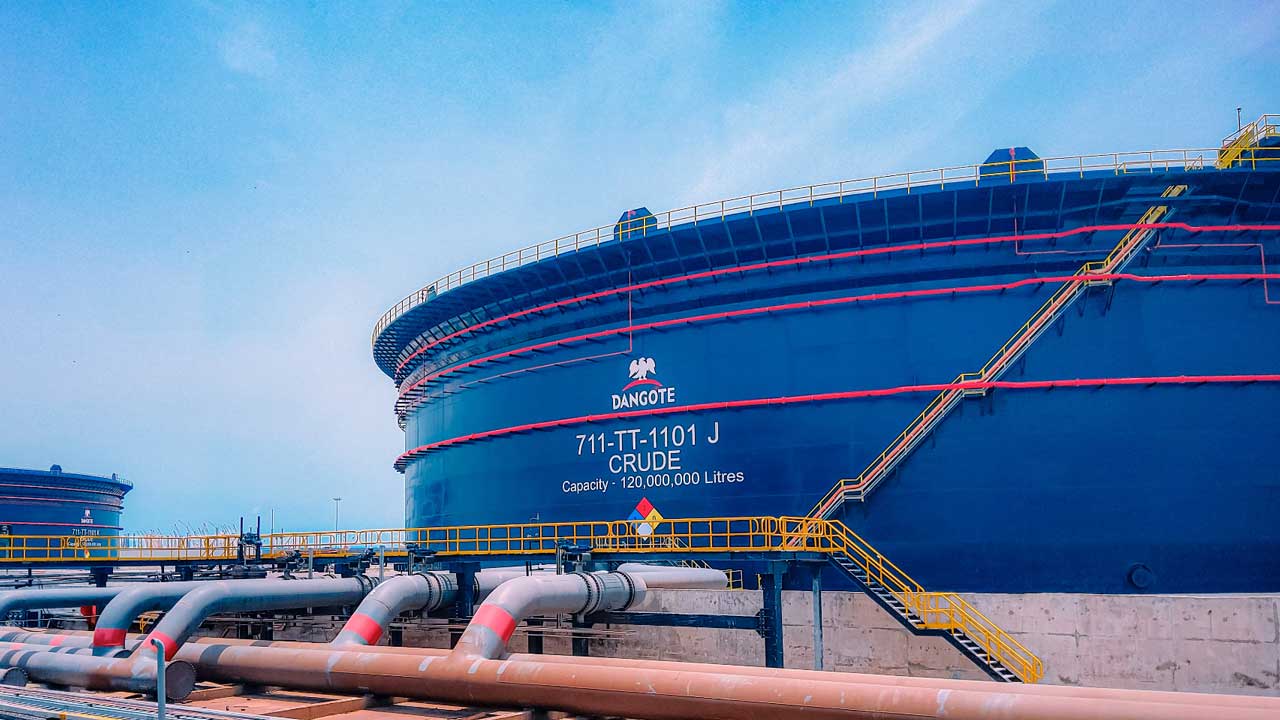Business
Dangote Refinery Faces Setback as Truck Owners Halt Operations over Lagos Charges

Tension is building in Nigeria’s downstream petroleum sector as fuel scarcity and pump price hike fears rise following the suspension of tanker loading activities at the Dangote Petroleum Refinery. The development comes amid plans by the refinery to begin nationwide distribution of Premium Motor Spirit (PMS) and diesel by August 15, 2025.
Members of the National Association of Road Transport Owners (NARTO) and the Independent Petroleum Marketers Association of Nigeria (IPMAN) have suspended operations in protest over a N12,500 electronic call-up charge enforced by the Lagos State Government on trucks operating within the Lekki-Epe corridor.
While the refinery aims to enhance access to refined products, NARTO’s action threatens to destabilise its logistics chain. The suspension, which could disrupt supply, has sparked widespread concern on social media, with Nigerians warning of a nationwide fuel crisis if the issue is not resolved within 48 hours.
In a memo dated June 14, NARTO President Yusuf Othman instructed members to halt truck programming for product loading, citing unresolved disputes over the new fee. The association had proposed a more modest N2,500 per truck, referencing harsh economic realities, but no compromise has been reached with Lagos authorities and their private partner, Call-Up Technologies Limited.
Despite Dangote Refinery’s efforts to strengthen nationwide fuel distribution—deploying 4,000 CNG-powered tankers, over 100 CNG trucks, and investing in daughter booster stations—industry leaders warn that logistics disruptions and rising operational costs could ultimately be transferred to consumers.
The company had announced that the upcoming supply phase would prioritise marketers, petrol dealers, manufacturers, telecoms firms, aviation, and other heavy users. Customers purchasing at least 500,000 litres would also receive a matching volume on two-week credit, backed by bank guarantees, as part of incentives to stabilize supply and drive economic growth.
Dangote’s statement described the move as part of a broader strategy to:
- Eliminate excessive logistics costs
- Revitalize dormant petrol stations
- Support SMEs
- Improve rural access
- Boost investor confidence in Nigeria’s petroleum sector
Analysts say while the refinery’s logistics initiative holds promise, unresolved tension with transport unions could jeopardise its smooth rollout, trigger fuel shortages, and impact pricing unless urgent government intervention is made.
RECOMMENDED FOR YOU
“Petrol Not Expensive in Nigeria” – Dangote Defends Fuel Price, Honours Tinubu at Refinery Launch























